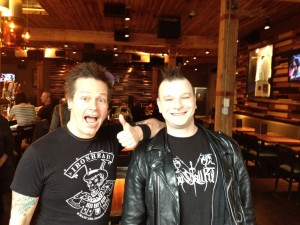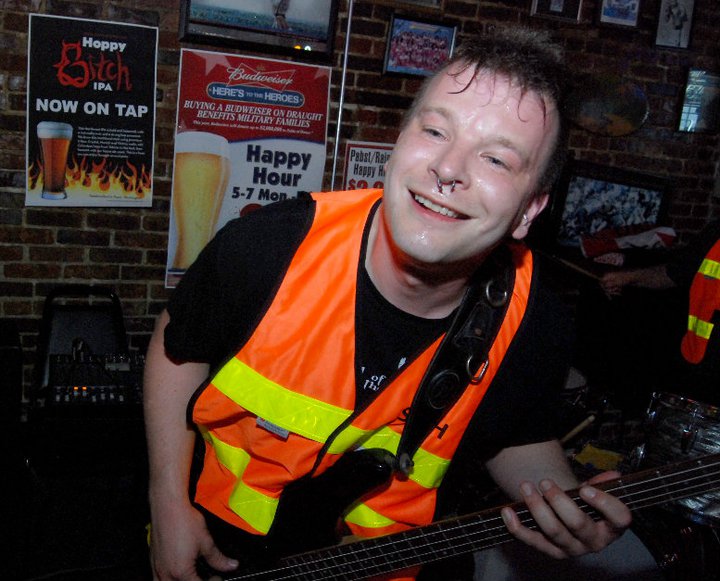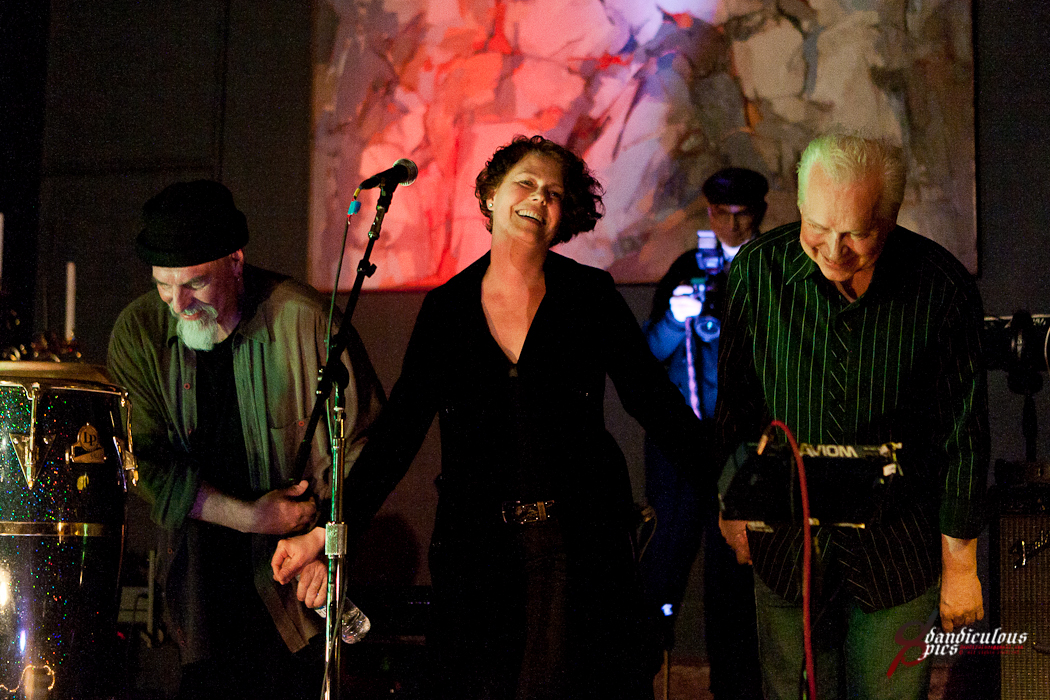I like to profile indie DIY musicians in an effort to distill practical music marketing lessons that the rest of us can learn from. My fellow Seattleite, Seth Jackson, has been doing this on his website, HowToRunABand, for much longer than I have. Like me, he’s a musician, blogger, and music marketer (as well as a techie – website designer and software developer), and he’s been a role model for me for almost two years now.
 Seth and I met in early 2012, when I was just beginning my journey as a music marketer. I was present at the first In Real Life (vs. social media) meeting between Seth and Brian Thompson at a Hard Rock Seattle music marketing panel discussion. Two peas in a pod, eh?
Seth and I met in early 2012, when I was just beginning my journey as a music marketer. I was present at the first In Real Life (vs. social media) meeting between Seth and Brian Thompson at a Hard Rock Seattle music marketing panel discussion. Two peas in a pod, eh?
Seth has a new podcast series on his website called Work Hard, Rock Harder (WHRH), where he interviews other musicians who make a living fulltime via their musical talents.
Seth is now up to interview #37. I thought it was time to check in with him and see what this WHRH thing was all about.
So Seth, what is this WHRH series, and what inspired you to start interviewing artists?
The Work Hard, Rock Harder podcast originally started as a collaboration between myself and Blasko, Ozzy Osbourne’s bassist and manager of the Black Veil Brides and Zakk Wylde. The motivation was to debunk the “myths” of being a rock star and outline what it really takes to make it in the music biz.
Unfortunately, Blasko was extremely busy, between touring with Ozzy and his growing duties being a manager of really successful bands. He did not have the time to always do the podcast.
So, I started doing it on my own for a little bit. Then, it dawned on me to interview musicians that are actually doing this craziness for a living.
I figure my audience is built of people that want to quit their day jobs and do music for the rest of their lives. Why not interview people actually doing that and let those people tell them exactly how its done?
What is your criteria for “full-time artist”?
This is a tricky question. In today’s music biz, there are multiple ways to be an independent artist. In fact, most musicians require multiple ways to be an independent artist. First and foremost, there is no “day job”. The artist’s income is music-based.
Second, the artist must be making original music. Original music doesn’t need to be the sole means of making money, however.
[For detailed information on the varied ways Seattle musicians make a living fulltime, check out this article by Chris Robley from CD Baby explaining the This IS A Real Job infographic by the Seattle Office of Film And Music.]
Third, the artist isn’t a massive rockstar or major label artist. Not that I wouldn’t interview a famous artist! Ha! I’d love that shit!
But, I’m looking at people that are doing things on a daily basis that any musician can accomplish. You or me can do this. We can get rid of our day jobs and live our passions every day.
I’m not looking for rich and famous. I’m looking for artists that have music as their full time lifestyle.
Do you see any common themes among these artists in terms of their music marketing?

No, I do not see any common themes for music marketing, per se. One musician is really active on Facebook. Another is great on Twitter. Yet another is killing it on YouTube.
Still, I see a few who are masters of no music marketing. And that surprises me.
The way the music marketing gurus make it out, it sounds like a musician can’t survive unless they’ve mastered every marketing platform and have thousands of followers everywhere. That’s not the case.
Actually, it’s extremely difficult to travel the world playing music and have a consistent internet connection! Some of the artists I interviewed are playing shows 200 to 300 days out of the year in both the US and in Europe. A solid WiFi signal is not always readily available.
Now that I really think about it, though, there is one marketing technique that every musician I interviewed has used: Networking.
Every one of the successful artists works very hard to create a network of people in the industry, and the artists work hard to maintain that network.
They go to events and meet people. They talk to all the people at the clubs they are playing and make connections. They reach out to people they’ve worked with in the past to keep in touch.
If an artists needs work, they go into their network and ask if there’s anything going on. Usually, someone knows someone else that has work for the artist. Boom, a new network connection is made.
None of the artists waited for those connections. Kira Small called every studio she could to get session gigs. Jason Wells called nursing homes to get paid gigs. Bob Wayne has maintained a network of bookers and clubs that he can do national tours yearly just by dialing people up on his cell phone.
So, don’t take the people around you for granted. Don’t be afraid to get on the phone or send an email to someone in the industry you’ve never met. Always stay in contact with your growing network. Always be nice and meet new people.
I’m really impressed at how many interviews you’ve done. What has been the biggest takeaway so far for you from these many interviews?
Here’s the money shot. I was going to put this out on my own blog, but I’ll say it here first!
1. Reduce your Expenses
If you have a ton of debt, you cannot just quit your day job and be a full time musician. Get rid of your debt. Cut up that credit card.
Really, take a second look at your lifestyle. What are you blowing your money on that doesn’t contribute to you being a full time musician?
The reality is your first few years of being a full time musician are going to be meager. Partying all the time and buying Xbox games probably will not be on the budget.
So your budget will be tiny, but you will be living your dream. Switch your perception from “having” to “being”.
2. Music Lessons
Give music lessons. Get income by teaching others. A majority of the musicians I interviewed supplement their income with music lessons.
Just be careful. If you want to be on the road 200 days out of the year, you can’t break away if you need to be giving lessons every day.
Don’t just create a new day job.
3. Networking
I won’t go into too much detail since I already covered this, but it is strategically important.
Grow your network constantly. Don’t be afraid to ask for new contacts from your current network.
4. Cold Calling
“Cold Calling” is the term used in marketing to describe calling people you don’t know in order to get something, usually to make a sale.
Get in the habit of calling those that have what you want or can get you where you need to be. However, they are going to tell you “no” most of the time. Which leads to…
5. Get Used to “No”
The road to “Yes” is paved with “No”s. Most people get really bummed when they are rejected and give up.
Don’t give up. “No” usually means “Not right now.” A “no” now could turn into a “yes” a few years from now.
But if you don’t ask, you will never get the “Yes”.
6. Be Flexible and Imaginative
- Be willing to do a solo project in addition to your band.
- Give lessons.
- Do session gigs.
- Be a paid gun on someone else’s tour or shows.
- Busk.
- Play a coffee shop.
- Play a nursing home.
Is there another thing you could do with your music that could make money? Do it!

7. Nothing’s Going To Be Given To You
There’s no A&R rep waiting to snatch you up from that club. No Major Label person ready to sign you for a million dollars.
That festival isn’t seeking the internet in order to find your band.
You need to do it for yourself. You need to take action.
8. Always be making new music
Your first album will be a dud. Keep writing new music. There’s nothing stopping you from writing a song a week or even a song a day.
Your longevity as a musician requires you to continually produce new music. Also, though you love your current tunes, that doesn’t mean anyone else does!
What great advice, Seth. I know a lot of musicians will take away some valuable insights from what these musicians have shared with you. Where can people listen to the WHRH podcasts themselves?
To learn more, follow me on Twitter @howtorunaband and sign up for my newsletter at http://HowtoRunABand.com where you will get a free eBook, Get More Fans To Your Shows.
Thanks, Solveig!
– Seth
Seth, you rock, my friend!
[Seth has both audio content as well as a written summary of each interview on his website, and there are some real gems in what these musicians have to say. On a side note, I’ve seen Seth rock the bar hard with his party metal band, Shiplosion. He does a metal version of Sir Mix-A-Lot’s Baby Got Back. I kid you not. And, if you haven’t read Seth’s 30 Day Twitter Guide For Musicians, I highly recommend that, too.]
What about you? Are you a fulltime working musician, making a DIY living in this industry? Share your experiences and learning here in the comments. Seth might be interested in interviewing you!




1 comment
Such great tips in this article. Few can say that earning a full time living as an indie musician is an easy thing. But there are people doing it. So much has changed in the last 10 years. It’s definitely a DIY world now and we are all finding creative ways to make it happen
In my own musical journey, when I was interested in learning about music production, I began spending more and more time around engineers and producers. I listened, learned and applied what I learned. Eventually I opened up a small recording studio in NYC. Having those skills, and some background in marketing and advertising, led me into some commercial music licensing opportunities. At the same time my interest in niche styles of blues and jazz guitar led me to write a series of online guitar lessons for truefire.com. Add to the picture playing gigs for events and sideman stuff and it all starts to add up.
The one thing that I know for sure is that none of it would have happened if I didn’t just take the plunge and do it. Yes we all have to make a living, but to make money as an indie musician (or an artist of any kind), you almost have to have the heart of an entrepreneur. You have to be willing to take risks, wear a closet full of hats and not be afraid to fail again and again. Sometimes you have to get in over your head. Some of my most inspired playing as a musician came out of those moments when I was forced to deliver. So it is with anything in life. We have to be willing to start today – ready or not. So whether it’s buying and selling gear, teaching, playing gigs, studio work, playing on the street, sound design, music licensing etc, in my experience there is no better time to start than today.
I recently co-founded http://www.AirGigs.com out of the desire to create a new income stream for production savvy indie musicians and audio engineers. It’s all about “online” recording studio gigs for musicians and it’s perfectly designed for those with an entrepreneurial and DIY spirit. I realized that like myself, there are so many talented people out there with their own unique recording setups and creative process that no one had access to. It might be the mad scientist engineer who only works from 2-5 am or an awesome rockabilly guitarist with sick tone and style, but no work. I think your audience might benefit from checking it out with respect to this article.
Again great stuff here…
Dave Blacker
AirGigs.com – Co-Founder